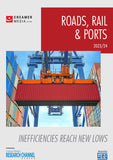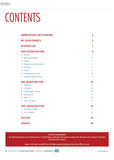The South African government is heeding the call to rethink transportation through strategic planning, and the development of resilient systems capable of addressing global externalities.
The National Logistics Crisis Committee has been established to enable a coordinated response to address the challenges in the country’s freight and port logistics network. This initiative aims to enhance operational efficiency, enact reforms, and establish enabling conditions within the freight storage and transport sector.
Further, on April 4, 2024, President Cyril Ramaphosa announced the establishment of a task team specifically tasked with addressing the longstanding challenges at the Port of Durban, in KwaZulu-Natal.
This port, once ranked sixty-third globally among container terminals, has now fallen to 341 out of 348 ports in the latest review of the World Bank’s Container Port Performance Index (2022). The Port of Cape Town is not far behind ranking at 344.
However, the most pressing challenge lies in the underperformance of South Africa’s freight rail network, as highlighted by Clyde&Co. The dismal state of rail infrastructure has compounded logistical issues, particularly in the transportation of bulk commodities like coal and iron-ore. Consequently, there has been a disproportionate reliance on road transport and, sometimes, costly air freight alternatives to offset the shortcomings of the country’s rail network.
Creamer Media’s ‘Roads, Rail & Ports 2024’ report reflects upon the current state of South Africa’s roads, delving into the some of the issues that are plaguing the sector such as maintenance backlogs and funding. It also brings to light the challenges that the rail sector is facing with regard to freight and passenger rail, and the state of rail safety. Congestion and inefficiencies at South Africa’s ports are also examined.




